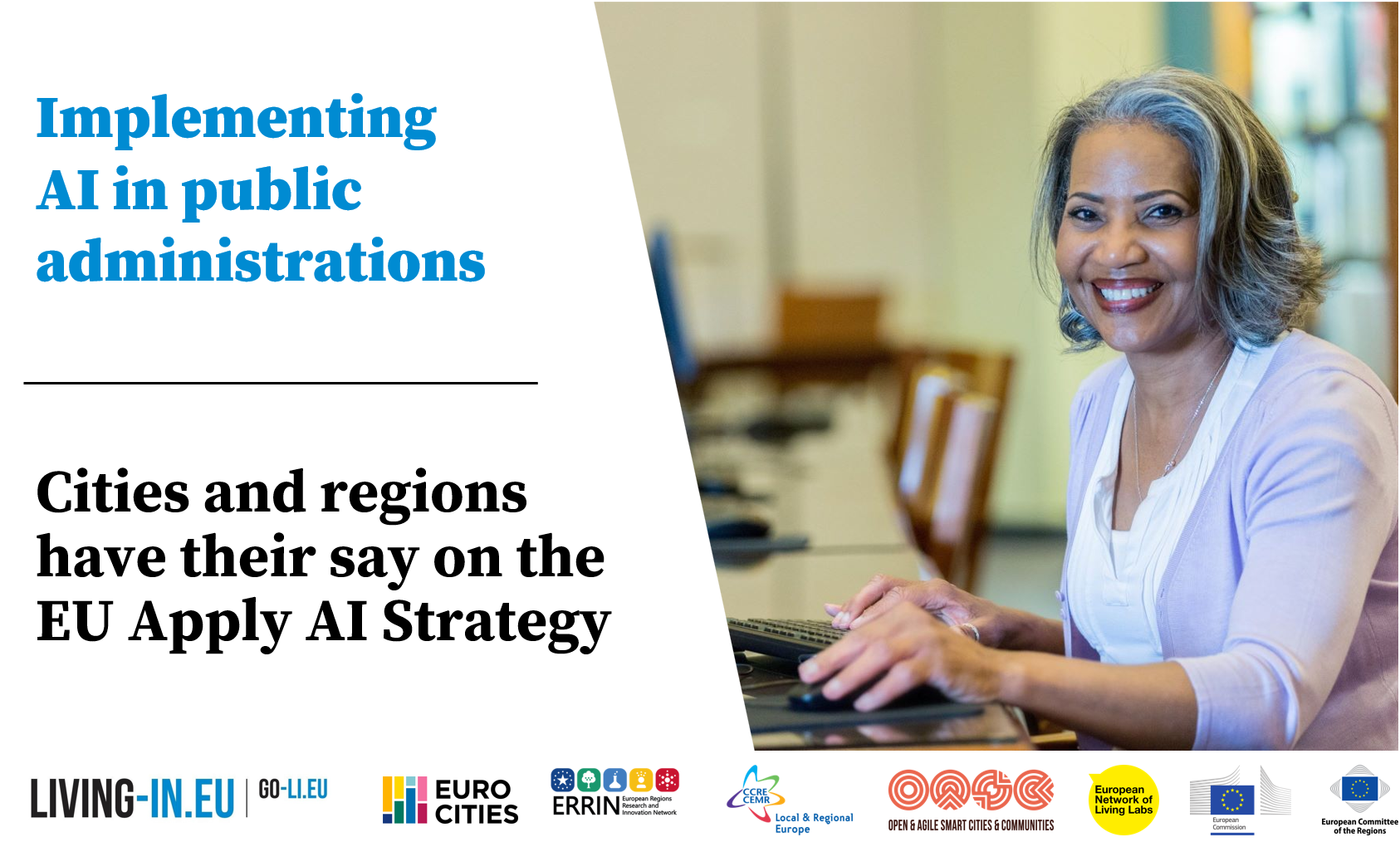Implementing AI in public administrations: Cities and regions have their say on the EU Apply AI Strategy
Following calls to increase the EU’s competitiveness in the development and uptake of Artificial Intelligence, the recently published AI Continent Action Plan aims to make the EU a “leading AI continent”. In this context, the European Commission has launched a public consultation to inform the drafting of the future “Apply AI Strategy”, an initiative aiming to strengthen the adoption and deployment of AI in key industries and the public sector in the EU.
Under the public sector chapter, the main objective of the Apply AI Strategy is to improve public service delivery and streamline administrative processes by fostering the integration of AI solutions. As cities and regions are key actors in the innovative and responsible use of AI – as recognised by a recent opinion of the Committee of the Regions –, the Apply AI Strategy is expected to have an impact on the provision of digital services at the local level.
A main goal of Living-in.EU is to highlight the key role of local and regional administrations in the upcoming Apply AI Strategy under the dedicated public sector pillar. Therefore, the Living-in.EU Legal Working Group organised this webinar to allow cities and regions to have their say on the Strategy.
Navigating AI adoption at the local level
As the co-chair of the Eurocities Working Group Data, co-organiser of the event, the city of Helsinki shared insights on their approach to AI implementation. The city recognises the role of AI in enhancing public services and the relevance of the EU Apply AI Strategy, but is also keenly aware of the legal uncertainty that cities face when aiming to comply with regulatory frameworks such as the EU AI Act.
These concerns were echoed by the other participants: Using selected questions from the public consultation on the EU Apply AI Strategy, the webinar allowed participants to share their experiences and needs in AI implementation. Among the most significant barriers to AI adoption, cities and regions selected the complex regulatory environment, but also highlighted the lack of available data.
In terms of motivations for the adoption of AI, while clearly driven by a better services delivery for the public, the responding cities and regions also unanimously selected administrative efficiency and automation as the thematic area that AI could bring the most added value to.
Complying with AI rules while exploring innovative solutions
In the open discussion that followed, EU-level support with regulatory compliance emerged again as a fundamental need from cities and regions. In the face of a lack of legal clarity and resources, digital innovation ecosystems including a broad range of stakeholders are key for AI implementation, in particular for smaller municipalities. Cities are already developing useful tools in this context, such as a roadmap for the uptake of AI cities, a project shared by the city of Rotterdam and developed with Tampere and Riga.
Cities and regions also emphasised the important role of AI literacy, internally within their organisations and for the public. From internal training courses and workshops to citizen engagement hubs, the education on AI basics both for residents and for city staff is key to responsibly implement AI in public administrations.
What happens next?
The input received and collected during the session will feed directly into a joint response on behalf of cities and regions to the call for evidence that is part of the public consultation on the Apply AI Strategy.
We will share a draft response to the call for evidence by 28 May, with the aim of submitting the final response by 4 June.
Interested in knowing more?
Read more about the webinar in the meeting notes and have a look at the slides from the presentations!








